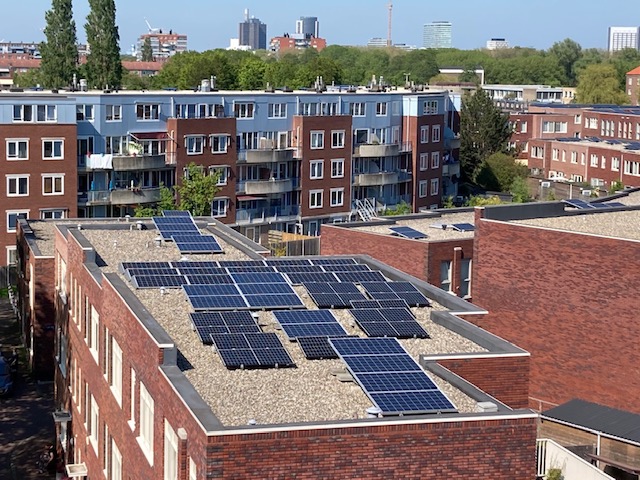
Solar panel owners have seen the cost of supplying surplus energy back to the grid increase by an average of 5% since March, according to figures reported by the Telegraaf.
The benefits of solar panels have been muted in recent years after energy companies began charging owners for supplying their own energy, rather than crediting them.
The government is also ending the net metering regulation, under which households with solar panels are paid for their surplus power even if they do not use it immediately, from the beginning of 2027.
Both rulings are designed to encourage owners to consume the energy they generate themselves rather than feeding it back to the grid, which stretches network capacity and is more expensive for power companies than buying from the market.
Longer payback time
But the effect has been to extend the time it takes for solar panels to earn back the installation costs from five years to between 15 and 20, according to the consumer rights agency Consumentenbond. Solar panels have an expected working life of 25 years.
Some providers have raised the cost of resupplying energy by 40% since March, increasing annual bills by up to €1,000, according to price comparison website overstappen.nl. Small households with a handful of panels have been hardest hit.
Other companies, including Eneco, Innova and Oxxio, have cut their tariffs by 20% or left them unchanged. On average households are paying 5% more since the changes took effect in March, overstappen.nl said.
The Consumentenbond has called for more transparency from energy companies on the costs of supplying electricity to the grid. It also says a uniform calculation method should be adopted so householders can compare prices.
“They all do it differently,” Consumentenbond managing director Sandra Molenaar said. “One calculates a fixed price per month, another uses so-called ‘scales’ or calculates the tariff per kilowatt hour. It makes it almost impossible for consumers to compare providers with each other.”
Thank you for donating to DutchNews.nl.
We could not provide the Dutch News service, and keep it free of charge, without the generous support of our readers. Your donations allow us to report on issues you tell us matter, and provide you with a summary of the most important Dutch news each day.

